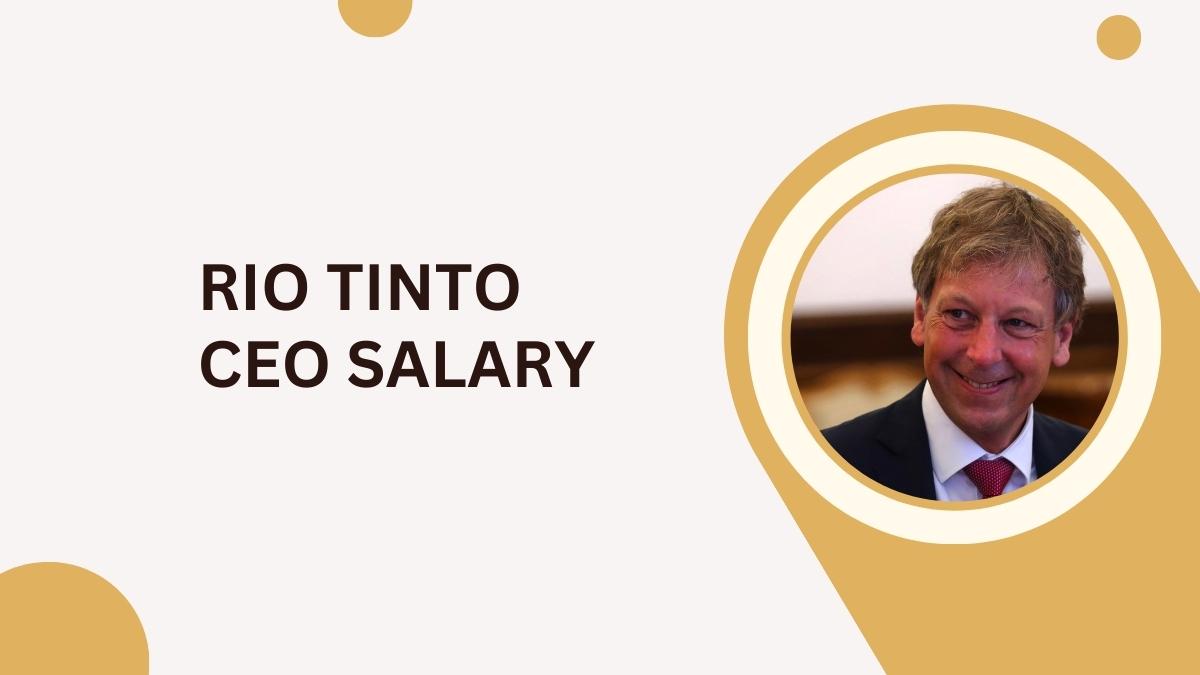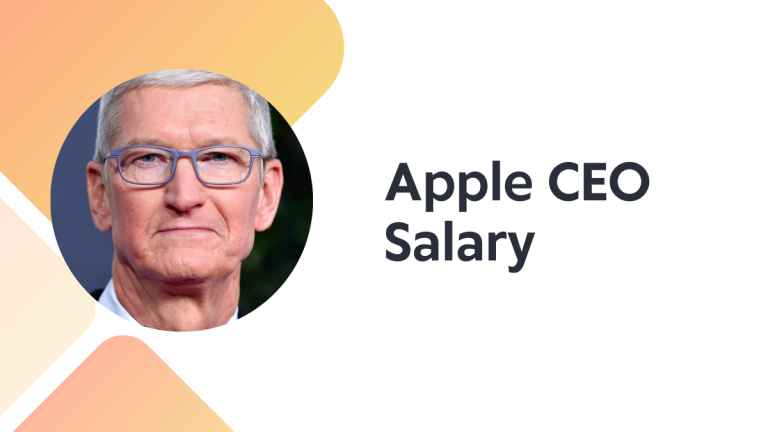Rio Tinto CEO Salary: Unveiling the Executive Compensation
Are you curious about the lavish world of executive compensation? Wondering just how high the salary of a CEO can climb? Look no further! In this eye-opening blog post, we delve into the mesmerizing realm of executive pay by shining a spotlight on none other than Rio Tinto’s CEO salary.
Get ready to have your mind blown as we unveil the jaw-dropping figures and shed light on the controversial debate surrounding these astronomical payouts. Buckle up and prepare for an intriguing journey through the fascinating landscape of corporate remuneration!
Explanation of Executive Compensation
Executive compensation refers to the financial benefits and incentives that are provided to top-level executives, such as CEOs, of a company. This includes their salary, bonuses, stock options, and other perks. In recent years, there has been much scrutiny over executive compensation and its impact on corporate governance and overall company performance.
One of the key components of executive compensation is the base salary. This is the fixed amount that an executive receives for their services, usually paid out in regular intervals such as monthly or biweekly. Various factors, including industry standards, company size and performance, and individual qualifications and experience, determine the base salary.
In addition to the base salary, executives may also receive bonuses based on their performance and the company’s financial success. These bonuses can make up a significant portion of an executive’s total compensation package and are often tied to specific targets or goals set by the company. Perks provide incentives for executives to drive growth and profitability for the company.
Stock options are another common form of executive compensation. These give executives the right to purchase company stock at a predetermined price in the future. Stock options are seen as a way to align executives’ interests with those of shareholders since they only realize a gain if the company’s stock price increases.
Other forms of executive compensation include perks such as housing allowances, car allowances, country club memberships, private jet usage, and other luxurious benefits. While these perks may seem excessive to some people outside of the corporate world, they are often seen as necessary for attracting.
Analysis of Rio Tinto CEO’s Salary and Benefits
Rio Tinto, one of the world’s leading mining and metals companies, has been making headlines recently for its CEO’s salary and benefits. In 2020, the company’s CEO, Jean-Sébastien Jacques, received a total compensation package of $17 million, including salary, bonus, and other benefits.
This amount sparked controversy and raised questions about executive compensation in the corporate world.
To get a better understanding of Rio Tinto CEO’s salary and benefits, let us dive into an analysis of their compensation package.
- Salary: According to Rio Tinto’s annual report, Jacques’ base salary in 2020 was $1.7 million. This is significantly higher than the average CEO base salary in Australia, which is around $1 million. His salary has also increased by 20% since taking over as CEO in 2016.
- Bonus: In addition to his base salary, Jacques received a cash bonus of $4 million in 2020. This amount was determined based on performance targets set by the company’s board. It is worth noting that this bonus was lower than his previous year’s bonus due to the poor performance of the company during that period.
- Long-Term Incentives: One of the most controversial aspects of executive compensation is long-term incentives or LTIs. These are usually granted in forms such as stock options or restricted share units (RSUs) that vest over a certain period.
Comparison with other Mining Companies’ CEO Salaries
When it comes to executive compensation, the salaries of CEOs in the mining industry have always been a topic of debate. Rio Tinto, one of the world’s largest mining companies, has recently released its CEO salary for 2021, sparking discussions and comparisons with other mining companies. In this section, we will take a closer look at how Rio Tinto’s CEO salary compares to other mining companies’ CEOs.
Firstly, let’s take a look at the overall trend in CEO salaries in the mining industry. According to data from Equilar, a leading provider of executive compensation data, the median total compensation for CEOs in the mining industry was $9.8 million in 2020. This represents a 10% increase from 2019 and is significantly higher than the median total compensation across all industries, which was $3.7 million.
Now, let’s dive into some specific examples and compare Rio Tinto’s CEO salary with that of other major players in the mining industry. BHP Group Limited, one of Rio Tinto’s biggest competitors, paid its CEO Mike Henry a total compensation package of $11.2 million in 2020. This includes base salary, bonuses, stock options and other benefits.
Criticisms and Controversy Surrounding Rio Tinto’s Executive Compensation
Rio Tinto, one of the world’s largest mining companies, has been under scrutiny for its executive compensation policies and practices. The company’s CEO salary, in particular, has received significant criticism and sparked controversy among shareholders, stakeholders, and the general public.
One of the main criticisms surrounding Rio Tinto’s executive compensation is the high salaries and bonuses awarded to top executives, especially CEO Jean-Sébastien Jacques. In 2020, Jacques received a total remuneration package of USD 7.1 million despite a year of poor performance and a devastating scandal that destroyed an ancient Aboriginal heritage site in Australia.
The discrepancy between executive pay and employee wages has also been a point of contention for many critics. While top executives at Rio Tinto are making millions of dollars per year, workers at the company’s mines around the world often earn significantly lower wages. This raises questions about fairness and equity within the company.
Furthermore, there have been concerns about how Rio Tinto determines executive compensation. Many argue that there is not enough transparency in the process and that it lacks proper oversight from independent directors or shareholder approval. This lack of clarity can lead to excessive payouts without adequate justification or accountability.
Another controversial aspect of Rio Tinto’s executive compensation is its reliance on short-term incentives, such as cash bonuses, rather than long-term performance metrics linked to sustainable growth. This incentivizes executives to prioritize short-term gains over long-term success and sustainability for the company.
Impact on Company Performance and Shareholders
The impact of executive compensation, particularly the CEO salary, on a company’s performance and shareholders, has been a highly debated topic in the business world. The controversy surrounding the high compensation packages of top executives has brought into question their value and whether they truly benefit the company and its shareholders.
One of the main arguments for high executive compensation is that it attracts top talent and motivates them to perform at their best, ultimately benefiting the company’s performance. However, critics argue that these exorbitant salaries are not necessarily tied to performance or success but rather based on industry benchmarks and peer comparisons. This raises concerns about fairness and whether executives are being overpaid for their contributions.
In terms of impact on company performance, studies have shown mixed results. Some studies suggest a positive correlation between CEO pay and firm performance, while others have found no significant relationship. This indicates that there are other factors at play in determining a company’s success besides executive compensation.
Moreover, excessive CEO salaries can also have negative consequences on a company’s financial health. High salaries mean less money available for investment in growth opportunities or distribution to shareholders through dividends. Shareholders may also question whether they are getting an adequate return on their investments when such large sums of money are being allocated towards executive pay.
Proposed Changes to Executive Compensation in the Mining Industry
The mining industry has been under scrutiny for its executive compensation practices, with many questioning the fairness and transparency of these high salaries. As one of the largest mining companies in the world, Rio Tinto’s CEO salary has recently come into focus, revealing some alarming figures.
In light of this, there have been proposed changes to executive compensation in the mining industry to address these concerns and create a more equitable system. These changes aim to align executive pay with company performance and shareholder interests while also promoting accountability and responsible corporate governance.
One of the proposed changes is to tie executive compensation to specific performance metrics rather than just overall company financial performance. This would incentivize CEOs to focus on long-term sustainable growth strategies rather than short-term gains that may not benefit the company in the long run.
Additionally, there have been calls for greater transparency in disclosing executive compensation packages. This includes not only base salaries but also bonuses, stock options, and other forms of remuneration. By making this information readily available to shareholders and the public, it promotes accountability and allows for informed discussions about whether these packages are justified.
Another change being proposed is a cap on executive salaries relative to average employee wages within a company. This would help address income inequality within organizations and ensure that employees at all levels are fairly compensated for their contributions.
Furthermore, there have been suggestions for more independent oversight of executive compensation decisions. Currently, these decisions are often made by boards of directors who may have personal or professional relationships with the executives they are evaluating.







